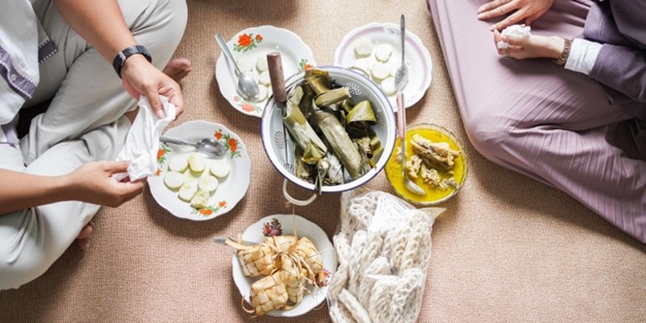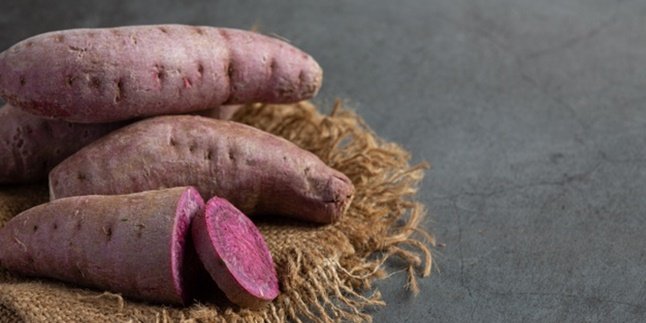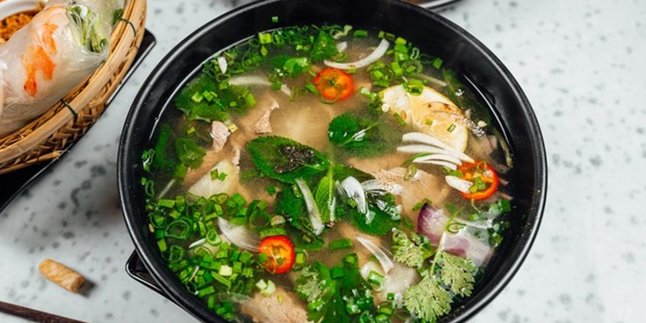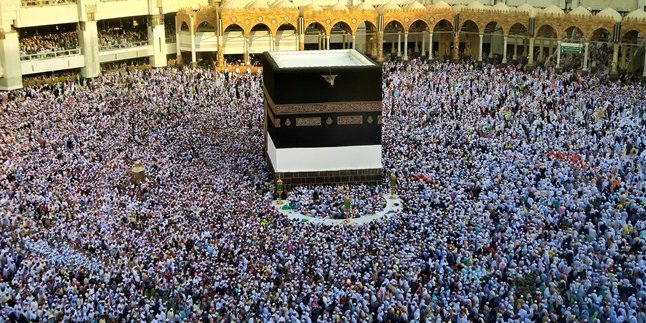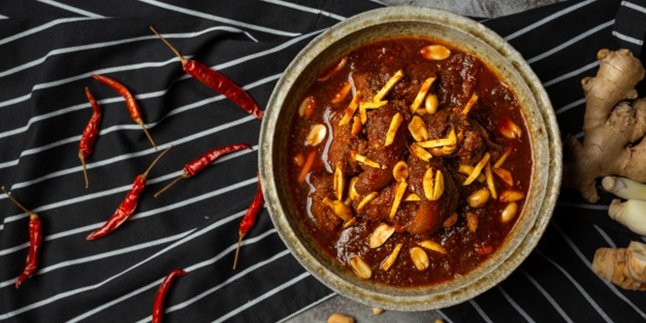Kapanlagi.com - The Idul Fitri holiday is just around the corner, surely many of you have prepared everything to celebrate it with joy. Yes, like buying clothes, making food, and cookies. But you need to pay attention to your food, KLovers.
Even though fasting is over, it doesn't mean we can eat whatever we want. We still need to manage our eating patterns. Although there are tips for managing eating patterns after Ramadan fasting. Yes, this is done to keep our bodies free from diseases. You need to immediately limit the Eid food that can cause cholesterol and other diseases.
Our eating patterns were already good during Ramadan fasting, but they will be ruined if not taken care of during Eid. Consuming excessive and indulgent food will disrupt your digestive system.
That's why it's important for us to reorganize our eating patterns after Ramadan fasting. Therefore, based on various sources, here are 7 ways to manage eating patterns after Ramadan fasting. Let's check it out KLovers.
1. Increase Vegetable Consumption
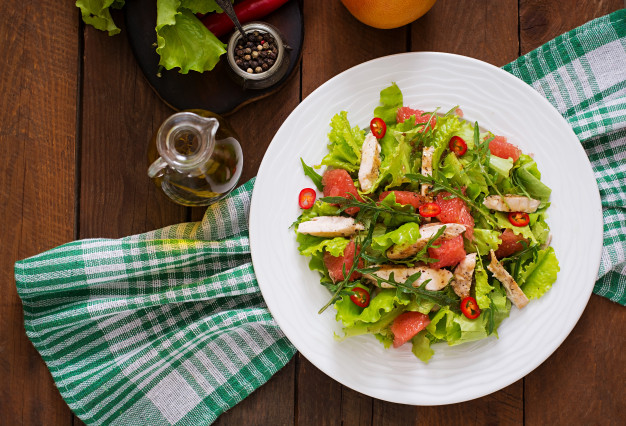
Illustration (credit: Freepik)
Tips for managing your diet after the first Ramadan fast is by increasing vegetable consumption. Yup! Fiber is one of the things that can make you feel full longer, so this makes you consume less food. Not only that, the protein content in some types of vegetables and grains is very good for your health.
You can prepare vegetables by cutting them into pieces as food ingredients for a whole week. For example, make slices of mushrooms and onions to sauté later. In addition, you can also add vegetable or fruit salads that have lower calories and high fiber as a post-Eid diet. You can choose an Indonesian-style salad, such as gado-gado.
However, when making salad, do not add unhealthy dressings such as cheese or mayonnaise, KLovers. It is better to use peanut sauce or salad dressing in moderation so that the calories entering your body are not excessive. You can also replace the sauce with healthier options like olive oil.
2. Increase Consumption of Fruits

Illustration (credit: Freepik)
Not only vegetables, you can also use fruits as one of the ways to regulate your eating pattern after Ramadan fasting. Not only can it make us feel full and low in fat, we all know that fruits have many vitamins that are good for the body. So, fruits must be included in your meal menu when you want to restore a healthier eating pattern.
Various fruit options that you can consume are watermelon, orange, papaya, avocado, or apple. Fruits high in fiber will make you feel full longer and prevent you from craving high-calorie, high-fat, and high-sugar foods such as cakes or other desserts.
3. Replacing Red Meat with Fish

Illustration (credit: Freepik)
During Eid, we will certainly consume a lot of food that contains fat, one of which is red meat. Yup! Red meat is like a mandatory dish that is available during Eid. Of course, this will make us consume a lot of red meat compared to other days. Well, to control your eating habits, you can replace red meat with fish.
The American Heart Association recommends eating at least two servings of fish per week. Therefore, you should keep fish stock in the refrigerator as a substitute for consuming red meat during Eid. Fish is rich in omega-3 which is good for cholesterol in the body. So, prepare the type of fish you like in the refrigerator so you don't have to shop again. To make it easier, it is better to choose fish that can be cooked directly when still frozen.
4. Regularly Consuming Probiotic Food Ingredients
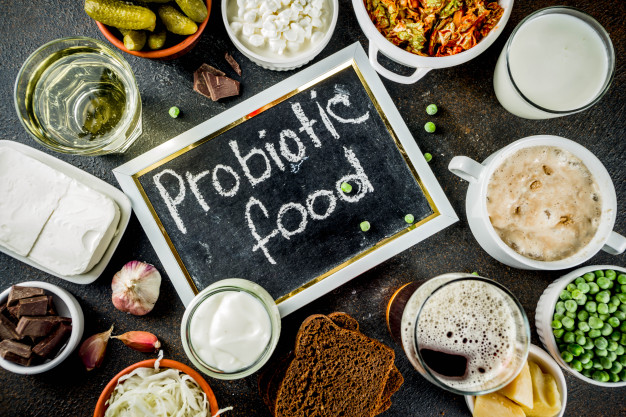
Illustration (credit: Freepik)
Then you can also consume probiotic foods to regulate your eating patterns to become healthy again. Foods with probiotic ingredients can certainly improve digestion very well. By consuming probiotics during Eid, it will maintain the good bacteria in the digestive system. Probiotics can be found in cheese, yogurt, and onions.
You can consume yogurt every morning with fruit. Then you can also add a little garlic to your dishes, or you can make onions as a healthy snack for the family.
5. Eat in Small Portions
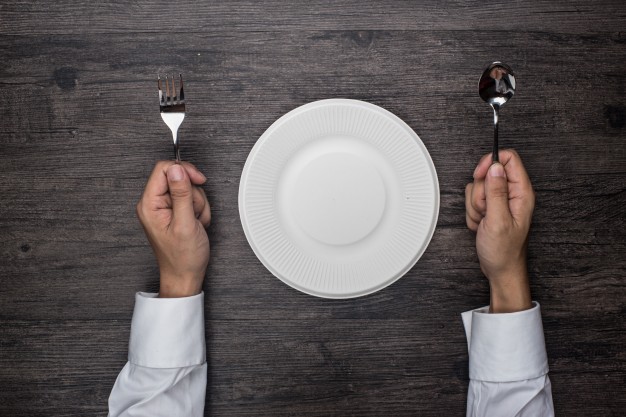
Illustration (credit: Freepik)
During Eid, many of us will consume large portions of food. Moreover, the food we consume is often unhealthy, such as fatty meat and coconut milk, as well as cakes and sweet drinks. This can disrupt your digestive system.
Not only does it disrupt the digestive system, but it can also cause weight gain. Even worse, it can increase cholesterol and blood sugar levels in the body. That's why it's good for you to consume food in small portions, KLovers. Researchers from King's College London have conducted studies on the impact of improper eating habits on body health.
The results show that people who eat whenever they want have a significant difference in the risk of developing metabolic syndrome, which is directly related to the development of type 2 diabetes, high blood pressure, and obesity.
6. Reduce Snack Consumption

Illustration (credit: Freepik)
Just like consuming food in small amounts, reducing snacks also needs to be considered. Reducing food does not only mean heavy meals, KLovers, consuming food can also be in the form of snacks, which can also make the body gain weight. Because during Eid there are certainly many snacks that you can consume, such as savory snacks and dry cakes.
So it would be better to reduce or even not consume excessive snacks. Because if you eat irregularly, eat whenever you want at times when you shouldn't even eat, this can disrupt the body's internal clock that regulates metabolic processes such as appetite, digestion, fat breakdown, and so on.
7. Drink Plenty of Water

Illustration (credit: Freepik)
And the last way to regulate eating patterns after fasting in Ramadan is to consume plenty of water. During Eid, you may drink too much fruit ice, cendol ice, soda drinks, and other sugary drinks. After Eid is over, it is better for you to increase your consumption of water, KLovers. You certainly know that drinking enough water, 8 glasses a day or about 2 liters, is very good for your health.
In addition to being cheap and easily obtained, water is the only drink with 0 calories and is healthy for the body. With that, consuming as much as you want will not add extra calories to your body. Not only that, by fulfilling the consumption of water, this will certainly improve your digestion and effectively eliminate all food remnants and fats.
Those are 7 tips for regulating eating patterns after fasting in Ramadan that are good and appropriate. Hopefully, by following some of the ways to regulate eating patterns above, your body will remain healthy and not gain weight.
(kpl/dhm)
Disclaimer: This translation from Bahasa Indonesia to English has been generated by Artificial Intelligence.
